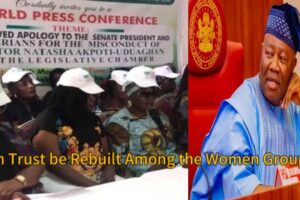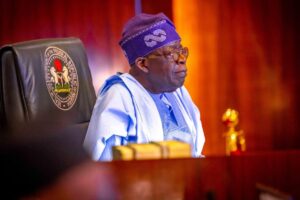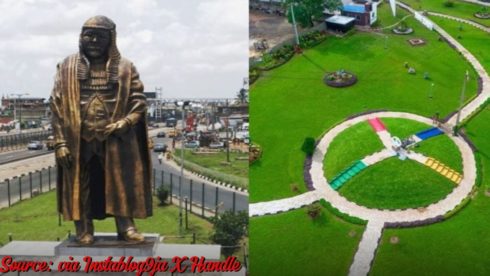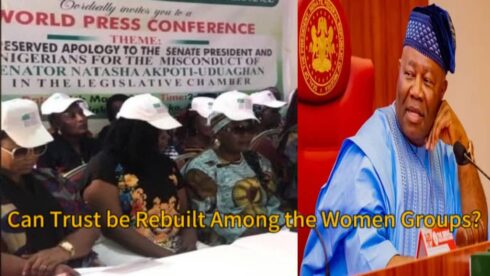Lagos High Court has limited the upcoming August 1 nationwide protest in Lagos to two designated locations: Gani Fawehinmi Freedom Park in Ojota and Peace Park in Ketu. Justice Emmanuel Ogundare’s decision comes in response to a preemptive ex parte application filed by the state’s Attorney-General, aiming to balance the right to protest with public safety concerns and potential property damage.
Lagos State High Court’s decision has ignited discussions about the limits of public demonstrations and the government’s responsibility in managing such events. By restricting the protest to specific locations, the ruling raises questions about the balance between freedom of expression and public safety. As the August 1 protest approaches, this development will likely influence the dynamics of the event and the government’s response to public dissent.
Legal Basis for the Lagos State High Court’s Decision
The restriction was imposed following arguments presented by Lagos State Attorney-General and Commissioner for Justice, Mr. Lawal Pedro, SAN. As the Chief Law Officer of the State, Pedro emphasized the necessity of protecting critical infrastructure and preventing a repeat of the losses experienced during the 2020 EndSARS protests.
Pedro’s application was based on notices received from various groups both for and against the planned nationwide protest. The court’s decision reflects an attempt to preemptively address potential security concerns while still allowing for public expression of dissent.
Implications for Freedom of Assembly
Lagos State High Court’s ruling raises important questions about the balance between the right to protest and public order. While the decision allows for demonstrations to take place, the restriction to specific locations may be seen by some as a limitation on freedom of assembly.
Proponents of the ruling argue that it provides a structured environment for protests, potentially reducing the risk of violence or property damage. Critics, however, may view it as an attempt to control and potentially diminish the impact of public demonstrations.
Public Safety Concerns Drive State Government’s Approach to Protest Management
The state government’s decision to restrict the August 1 protest to specific locations, as seen in the Attorney-General’s application, underscores ongoing concerns about public safety during large-scale demonstrations. The 2020 EndSARS protests, which resulted in significant unrest and property damage, have likely influenced this approach, highlighting the need for authorities to balance freedom of expression with the need to maintain order.
As authorities implement additional security measures around the designated protest areas, their effectiveness in maintaining order while allowing for meaningful protest will be closely scrutinized. Supporters and critics of the Lagos State High Court’s decision will be watching to see if the measures strike the right balance between public safety and the right to protest. The outcome will have implications for future protests and the government’s approach to managing public demonstrations.
Lagos State Court Ruling Sets Stage for Adaptation and Potential Challenges
The Lagos State High Court’s decision to restrict the August 1 protest to specific locations in Lagos will have a direct impact on the organization and execution of the demonstration in the state. This localized restriction may have far-reaching implications for the overall impact of the nationwide protest, as Lagos is a key hub for political activism and dissent.
In response to the Lagos State High Court’s ruling, protest organizers and participants will need to adapt their plans to comply with the restrictions. This may involve concentrating their efforts at the designated locations, such as Gani Fawehinmi Freedom Park and Peace Park, or potentially challenging the ruling through legal channels. The ability of protesters to effectively adapt and navigate these challenges will be crucial in determining the success of the August 1 protest in Lagos and beyond.
Divided Opinions Emerge as Lagos Court’s Decision Sparks Debate
The Lagos State High Court’s ruling restricting the August 1 protest to specific locations is expected to generate diverse reactions from various segments of society. Pro-government individuals may see it as a necessary measure to maintain public order, while opposition groups, civil society organizations, and human rights advocates may view it as an infringement on democratic rights and freedoms. This divide in opinion highlights the complex political landscape surrounding public demonstrations.
As the government navigates the implementation of this decision, political analysts will be closely watching its impact on public sentiment and political dynamics in Lagos and beyond. The handling of protests within the designated areas will be crucial in shaping public opinion and potentially influencing future policies on public demonstrations. Effective management of the protests could mitigate tensions, while heavy-handed tactics may exacerbate them, leading to further polarization and potential unrest.
Table of Contents
Discover more from OGM News NG
Subscribe to get the latest posts sent to your email.














